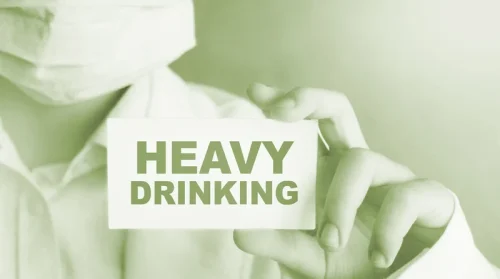
Honestly, I didn’t expect this amount of responses, and how my story inspired different people in different places was touching. I felt deeply grateful for having this chance to live such an experience. We all feel pain from the same circumstances, and we all seek a normal peaceful life. Alcoholics Anonymous It is inspiring to read my story again to be reminded of what’s important in life. I love reading the stories of others and your magazine brings a lot of hope and inspiration during a time of uncertainty and unrest across the world. And just like every epic movie would feel incomplete without a character or a scene, so too the world’s history remains incomplete without your chapter.
Meditating on Creativity for Hope and Healing

Feel free to pick one platform or person you feel most comfortable with. Given its potential, storytelling has also been acknowledged in the realm of mental health as something called Narrative Therapy. Incorporating storytelling into therapy may be a relatively new treatment approach. However, there is already some evidence that it is helpful for a variety of conditions including anxiety and depression.
How to share your story
Below is the email with my personal story if you’re interested in reading it. So I decided to take a big leap of faith and share something deeply personal in my weekly newsletter. I wrote about my =https://ecosoberhouse.com/ struggle with procrastination and my attempts to finish my book. As a self-described introvert, talking about myself is one of the things that makes me most uncomfortable. There are a million other things I would rather discuss than myself and my stories. There’s a reason for this – it’s vulnerable to tell your personal stories.
Educators as Storytellers
- There’s immense irony in that belief because I’m so often coaching others to believe that they have stories worth sharing.
- They preferred sticking with the old one, and as a result, the poor uptake really threw off the quality of data reporting.
- Hope is what keeps us going and that mother in Australia not only made me believe I had empowered her, she made me believe I had created hope.
- She earned her MD from the University of North Carolina at Chapel Hill, where she also completed an MPH in public health leadership.
- With user-friendly features designed for impactful storytelling, Storly.ai allows you to weave together personal experiences, emotions, and visuals into stories that engage and inspire.
One of the darkest parts of having a story to tell is the abuse that comes with it. You need to share it to release and heal from everything that destroyed you altogether. When you’re so overwhelmed by everything you went through, finding your voice seems close to impossible. In fact, it’s easier to repress your emotions until you feel numb by default.
Check out our digital guide on “The Power of Sharing Your Story” and learn how to share lived experiences in ways that can reduce stigma and provide support for yourself and others. Another study published in the Journal of Applied Developmental Psychology found that preschool children who were exposed to storytelling sessions showed greater empathy towards others. The study measured empathy through the use of puppet shows and found that children who had attended storytelling sessions were better able to identify emotions and respond appropriately.
- You’ll be surprised how many people your story moves, once you get the chance to do so.
- Content marketing experts recommend evaluating factors such as the demographics of your target audience, the nature of your story, and the type of engagement you seek.
- If the internet has taught us one thing, it’s that everyone has a story – and we love to share them.
- Storytelling can help students develop emotional vocabulary by providing them with examples of how different emotions can be expressed.
- The theme is the overarching message or idea that the story is trying to convey.
- Bursts of laughter, tears of joy, sobs of sadness, love, grief, anger, it is all part of our story we call ‘Life’.
- Moving into a place where I’m (slightly) more comfortable being vulnerable with people is something that I have been working on this past year.
Empathy and Storytelling

Gain a comprehensive understanding of schizoaffective disorder, a complex mental health condition sharing your story in recovery that combines symptoms of both schizophrenia and mood disorders. Aura is the first all-in-one wellness app that learns how to best help you. Discover an endless library of expert-created tracks for your well-being, all taught by the world’s best coaches, therapists, and storytellers. With Aura’s personalized recommendations, you can find peace every morning, day and night. Familiarity with the audience, the context, and purpose of sharing are key factors that guide the selection of your story. The chosen story must bear relevance to your audience’s interests, needs, or shared context for it to resonate and connect.
Through these stories, complex issues and situations are shown through the personal lens of someone who may be similar or different to the reader. Alternatively, you can easily share your personal stories on our website, History Chip – a free platform that lets you share your experiences and stories with a global audience. Corporate storytelling is the strategic use of narratives to communicate a company’s values, mission, and brand message. It’s a way to humanize a business and create an emotional connection with stakeholders.
- You can become a mentor of sorts, offering guidance and support to those struggling to find their way.
- Stories can help us develop this skill by presenting different characters and their perspectives.
- Emotional, autobiographical storytelling can be a path to truly owning your story.
- Resilience is strengthened by recognizing that we are all experts in our own lives and we all have something to share with others.
Even though previously mentioned research could not prove significant mood improvement, let me tell you a story what helped me share. Get helpful tips and guidance for everything from fighting inflammation to finding the best diets for weight loss…from exercises to build a stronger core to advice on treating cataracts. PLUS, the latest news on medical advances and breakthroughs from Harvard Medical School experts. As a service to our readers, Harvard Health Publishing provides access to our library of archived content. Victoria Maxwell is a playwright, actor, and lecturer on her ‘lived’ experiences of bipolar disorder, anxiety, psychosis and recovery. I was involved as an advisor to help gather stories and offer some guidance to those writing pieces.


This strategic approach to story sharing is essential for nonprofits looking to boost visibility and foster a strong community of supporters. Recently, researchers have demonstrated that storytelling can make hospitalized kids feel better. The storytelling kids also described their hospital experiences more positively, and reported lower levels of pain. Today, as we emerge from over a year of social isolation, I am focused on the benefits of sharing stories in community. When we witness someone else’s vulnerability in a safe and supportive environment, we feel less alone, and often just plain better.





